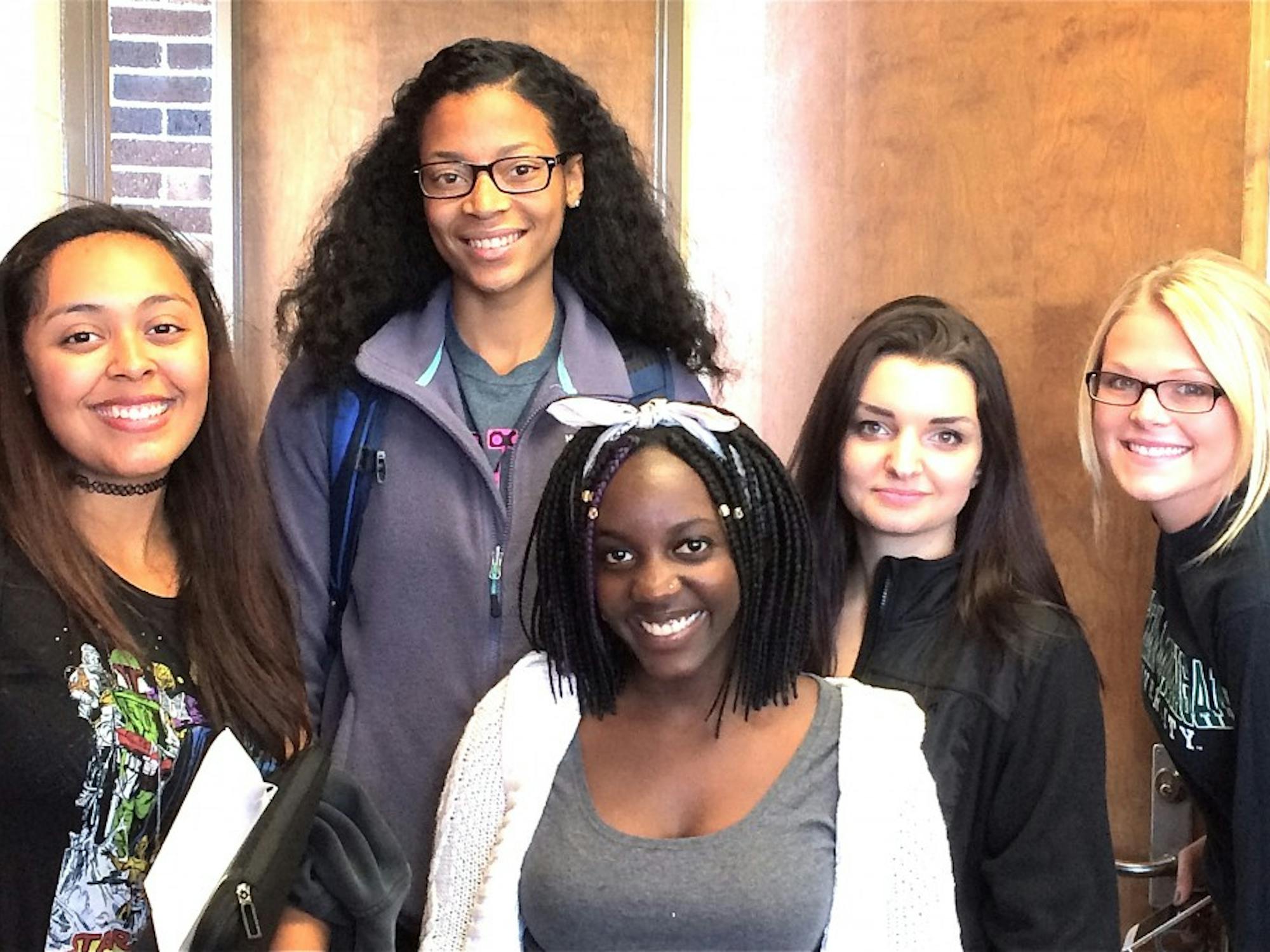The McNair Scholars Program at Eastern Michigan University is enabling first generation and underrepresented students to earn masters and doctoral degrees.
The McNair program is a structured three to four-year program. Eligible sophomores must either be a low income and first generation college students or be underrepresented. They must also have at least a 2.85 GPA and be committed to continuing their education with at least a graduate degree.
The program currently works with 35 scholars, a small fraction of EMU’s total student body.
Heather Neff, a professor in the English, language and literature department, is the program director.
“What we try to do is take people who are at the bachelor’s level, assist them in every way possible to succeed in bachelor’s studies, and move on to at least the master’s degree,” Neff said.” And, in the perfect world, we want to see them complete a doctoral degree so they can become a professor or professional researcher.”
The path to graduate school is opened for scholars with waived application fees, tuition wavers and mentorships.
Mariah Brito, a junior biochemistry major, said students in this population need the extra support because they didn’t have it at home or in high school.
“Especially with first generation students, you have a lot of problems with family not understanding why you would want to even continue education,” Mariah Brito, a junior biochemistry major said.
Every student in the program works with a faculty mentor who teaches in the student’s field of study. That mentor teachers them, preferably on a one-on-one basis, how to conduct research in their field.
Students can work with mentors for up to three years and can work with as many mentors as they like. The scholars are expected to conduct research every semester they are in the program.
“McNair doesn’t tell you what to study, we don’t care what you study,” Neff said. “We just want to support you through whatever you want to do to keep on going.”
Brito said professors are eager to work with the students in the program because of the mentality they have going in to ask for the mentorship.
“[McNair Scholars are] enthusiastic, ready to go, ready with questions, ready to offer suggestions,” Brito said. “And that’s not something that everyone at the school does.”
Neff said the faculty who work with the students can identify with them as many EMU faculty members were first generation college student’s themselves. She said in some cases, the mentors become almost like godparents to the students.
“That mentoring relationship goes beyond just the classroom,” Neff said. “It goes to really personal, academic and support relationships – and that’s the purpose of the mentoring relationship.”
Students in the program leave their undergraduate degree having done research and having been published. Neff said the online version of the journal has been published over 100,000 times internationally.
Dominique Canning, a senior English linguistic major with a minor in queer studies and McNair scholar, said her paper has been read by people in Australia. She has presented her research at conferences across the country.
Neff said she does not advertise the program; when students are academically eligible, they are invited to apply.
The program is exclusive; this fall, 500 students were invited to apply based on eligibility and four were accepted.
Neff said they are looking for a blend of excellence and research motivation.
“McNair scholars are really turned on by knowing stuff,” Neff said. “We know when they come for the interview in 30 seconds because it’s that student who just loves knowing things, loves learning.”
The McNair Scholars Program is part of a competitive nationwide program paid by the Federal Department of Education. EMU’s program is in its ninth year.
Neff said the FDE selects schools based on whether or not the faculty can argue that the faculty are willing to work with students and that students will get the personal support they deserve.
Tiffany Browne, a senior English literature major, said the support she received through the program is invaluable.
“McNair has challenged me and pushed me to become a much better and more prepared scholar and professional.”










